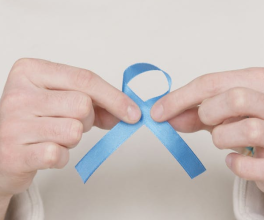
4 Topics to Talk About During CRCA Month
March is Colorectal Cancer Awareness Month, a time when the discussion of colonoscopies and early screening is at its peak. Each year, Olympus Corporation produces a strong campaign internally and externally to help raise awareness of the benefits of early screening, listening to symptoms, and being proactive with your health. That may be because when detected early, colorectal cancer (CRC) is one of the most preventable and treatable forms of cancer, yet a third of at-risk adults are not proactive in making sure their cancer is caught before it can advance.1
Here are some of the main messages surrounding Colorectal Cancer Awareness Month nationwide:
 Young-onset CRC is on the rise.2
Young-onset CRC is on the rise.2
In the United States, the rates for colorectal cancer have been declining among adults 50 years and older, while it is on the rise for adults under 50.2 This could be why the U.S. Preventative Services Task Force lowered the recommended screening age to 45 from 50 in recent years.
 Colorectal Cancer death rates are about 40% higher for African Americans.3
Colorectal Cancer death rates are about 40% higher for African Americans.3
Additionally, from 2015 – 2019, colorectal cancer incidence rates were 20% higher for African Americans.4 In an editorial written by Muhammad Awidi, MD, and Samer Al Hadidi, MD, MS, the researchers analyze the low participation of Black Americans in cancer clinical trials and discuss challenges. They cite that the rate of screening colonoscopy is 8% lower in Black Americans, which could lead to a later-stage diagnosis and worse clinical outcomes.5
 #TheyDidntSay.
#TheyDidntSay.
This new hashtag is trying to shed some light on aspects of colorectal cancer that too often go unnoticed when it comes to African Americans being at higher risk of a CRC diagnosis, and who need to get screened earlier and receive better quality care to reduce the disparity. Olympus Corporation of the Americas is helping to sponsor the Colorectal Cancer Alliance’s #TheyDidntSay campaign to help raise awareness of things that may be left out of the cultural conversation.
 Know Your Family History.
Know Your Family History.
Family history plays a crucial role in determining cancer risk. According to the Colorectal Cancer Alliance, about 1 in 3 colorectal cancer patients have a family history of colorectal cancer.1 Learn how “family history” is defined when it comes to colorectal cancer risk and how to get more insight with this genetic risk quiz: Family History and Hereditary Colorectal Cancer | Colorectal Cancer Alliance (ccalliance.org).
For more information on how you can make a difference during CRCA Month, visit:
1. American Cancer Society. Detecting Colorectal Cancer | Can Colorectal Cancer Be Found Early? Last revised June 29, 2020. Access February 2023.
2. American Cancer Society. Colorectal Cancer Risk Factors | Hereditary Colorectal Risk Factors. Last revised February 1, 2023. Accessed February 2023.
3. American Cancer Society. Colorectal Cancer Rates Higher in African Americans, Rising in Younger People. September 3, 2020. Accessed February 2023.
4. American Cancer Society. Cancer Facts & Figures for African American/Black People 2022-2024. Atlanta: American Cancer Society, 2022
5. Awidi M, Al Hadidi S. Participation of Black Americans in Cancer Clinical Trials: Current Challenges and Proposed Solutions. JCO Oncol Pract. 2021 May;17(5):265-271. doi: 10.1200/OP.21.00001. PMID: 33974816; PMCID: PMC8258017.





